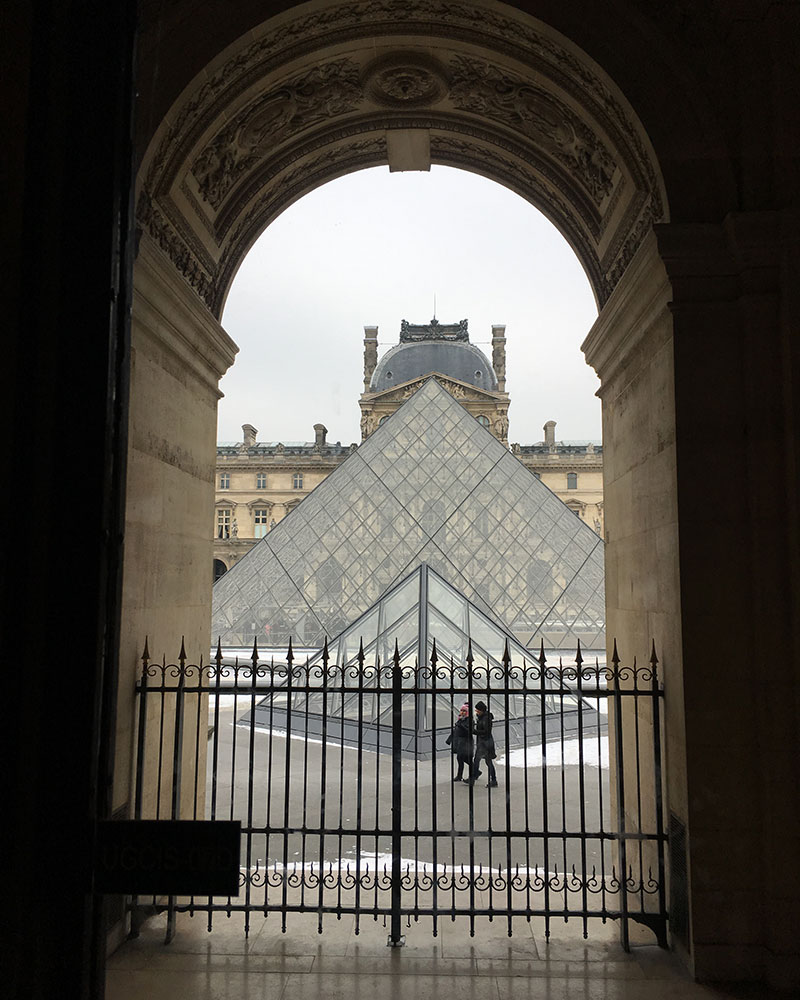The Louvre is Proof of Global Shared Humanity
A couple of years ago, my son and I met in Paris, France, for a quick vacation. We had been before, but always on short layovers. This trip was different. It was our chance to delve into the beautiful historic city. Our expectations were simple: see the major sights, enjoy the diversity of food, and walk everywhere. Included on the agenda was the Musee d’Orsay, Musee Du Quai Branly, and of course, the Louvre. It was fortuitous that the book I chose to read on this trip was Steven Pinker’s Enlightenment Now, The Case for Reason, Science, Humanism, and Progress. Pinker’s overarching thesis is that life, health, prosperity, safety, peace, knowledge, and happiness are on the rise because past intellectual movements emphasized reason and science.
Our museum visits consisted of miles of rooms filled with paintings, sculptures, and artistic artifacts like tribal celebration masks, totem poles, and coronation jewelry. Every part of our planet was represented, from Oceania, Europe, and Africa to North America and Asia. The collections cascaded through millennia.
My son is a trained artist. He observed different skills, genres, techniques, color palettes, formats, and contrasts. I lack the artistic gene, however. My perspective focused on the patterns and connections between the pieces of art. From a wooden carving of the Madonna by an unknown Oceanic artist, or Italian painter Sandro Botticelli’s Madonna and Child with St. John the Baptist, I saw connections.
Thousands of works of art were connected by a common thread. Humanity.
Over and over, across eras, cultures, geographies, economies and political structures, these works of art told stories of humanity. Even in the most ancient pieces, we connected with expressions of family, life, struggle, love, faith, conflict, birth, and death. The pieces were expressions of the shared experiences. They reminded us that the human condition binds us all. No matter the highs or lows, geographies, cultures, or even eras — we are one.
A reminder in a time of uncertainty
"The ideals of the Enlightenment are products of human reason, but they always struggle with other strands of human nature: loyalty to tribe, deference to authority, magical thinking, the blaming of misfortune on evildoers.”
- Steven Pinker

We live in a time of volatility. People, organizations, industries, and governments are striving to deal with rapid change. We’re rattled by uncertainty about the future and what steps to take. The persistent disorientation is creating more confusion, conflict, and tension between individuals and groups. And we’re losing sight of the fact that our shared humanity is fundamental. All these feelings of uneasiness and unpredictability can cause us to take actions that are counter to progress and productive problem-solving.1 And that puts distance between our shared stories.
Now more than ever, we must work hard to remember that humanity is the only ubiquitous platform. Leaders and decision-makers at every level, in every context, must consider the greater global impact of strategies and actions. More than that, they must behave in accordance with the recognition that we are part of a shared global society.
Brené Brown cautions us to slow down and take note of possible consequences of our actions. “When the culture of any organization mandates that it is more important to protect the reputation of a system and those in power than it is to protect the basic human dignity of the individuals who serve that system or who are served by that system, you can be certain that the shame is systemic, the money is driving ethics, and the accountability is all but dead.”2
The history we write for ourselves can be an era of acceptance, connectedness, and progress. Solving our shared, complicated, persistent challenges starts with a question — are we willing to accept our sameness?
Doing so means exposing ourselves to (even seeking out) those who do not share our deep-seeded paradigms, and operating free of bias. Just as the fundamental truth of our shared humanity is simple at its core, so is the consequence of allowing our perceived divide to grow into a chasm we’re unwilling or unable to bridge. It means a dark age of exclusion and harmful distrust.
I don’t think we’ll let that happen. What my son and I saw in the countless floors of countless rooms of countless works of art is a reason for optimism. It serves as a global case study for our future. It gives me faith. There’s no denying that today’s rhetoric is generally gloomy and sometimes seems devoid of hope. But our actions as people working together for good outpace the negativity. People care for one another and about living out their values. Consider that volunteerism has been at record levels in the U.S. since 2013.3 So do companies — globally, 90% of G250 corporations acknowledge the issue of human rights in their CSR efforts.4
Much divides us. But I attest that our actions now as individual human members of a shared global community burn brighter than any other point in history. Our story is only now unfolding. What do you think it will look like a century from now, hung on the walls of the best museums? I have a feeling that if we strip away the markers of the era, it will look the way it does now — like evidence of humans fully engaged in intellectual challenges, emotional joys, and great unsolvable questions.
- Steven Pinker, Enlightenment Now; The Case for Reason, Science, Humanism, and Progress, 2018
- Brene Brown, Braving the Wilderness: The Quest for True Belonging and the Courage to Stand Alone, 2017
- U.S. Volunteerism over 12 month period, Statista, 2017
- Survey of Corporate Responsibility Reporting 2017, KPMG, 2018